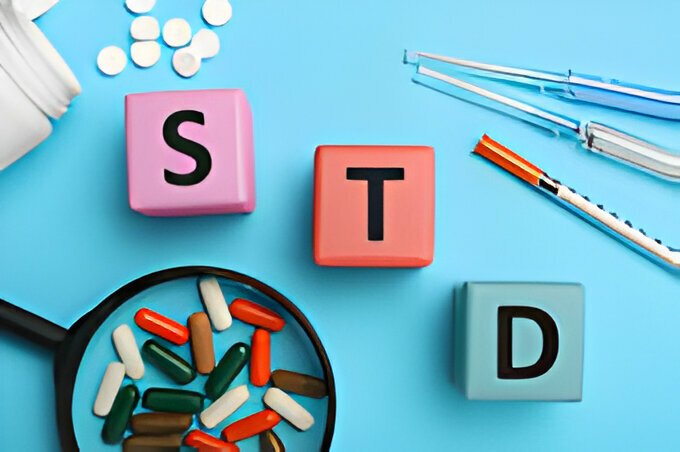Sexually transmitted diseases (STDs) are confirmed through various methods, including laboratory tests on samples such as blood, urine, or genital swabs. These tests can detect the presence of the infectious agent responsible for the STD. Additionally, healthcare providers may conduct physical examinations, review medical history, and assess symptoms to make a diagnosis. Testing methods vary depending on the specific STD being screened for. It’s essential to consult a healthcare professional for accurate diagnosis and appropriate treatment.
Importance of STD Testing:
STDs are infections transmitted through sexual activity, including vaginal, anal, or oral sex. They can be caused by bacteria, viruses, or parasites and may present with a wide range of symptoms or no symptoms at all. Left untreated, STDs can lead to serious health complications, including infertility, pregnancy complications, pelvic inflammatory disease (PID), and an increased risk of HIV transmission. Testing for STDs is crucial for several reasons:
Early Detection:
Many STDs may not cause noticeable symptoms initially, making it easy for infections to go undetected. Regular STD testing allows for early detection and prompt treatment, reducing the risk of complications and transmission to others.
Prevention:
Knowing one’s STD status is vital for preventing the spread of infections to sexual partners. Individuals who test positive for an STD can take necessary precautions to avoid transmitting the infection to others, such as practicing safer sex and informing their partners to seek testing and treatment.
Peace of Mind:
STD testing provides peace of mind for individuals who may be concerned about their sexual health. Knowing one’s STD status, whether negative or positive, allows for informed decision-making regarding sexual activity and healthcare.
Methods of STD Testing:
STD testing methods vary depending on the type of infection being screened for and may include:
Blood Tests:
Blood tests detect the presence of antibodies produced by the immune system in response to an STD infection. Common blood tests for STDs include:
- HIV: Tests for the presence of HIV antibodies or antigens in the blood.
- Syphilis: Detects antibodies against the bacterium Treponema pallidum, which causes syphilis.
- Hepatitis B and C: Screens for hepatitis B surface antigen (HBsAg) and antibodies to hepatitis C virus (HCV).
Urine Tests:
Urine tests are non-invasive and can detect certain STDs by analyzing urine samples. STDs that can be tested using urine samples include:
- Chlamydia: Detects the presence of Chlamydia trachomatis bacteria in the urine.
- Gonorrhea: Screens for Neisseria gonorrhoeae bacteria in the urine.
Genital Swabs:
Genital swabs involve collecting samples from the cervix, urethra, vagina, or rectum for laboratory testing. Swabs may be used to test for the following STDs:
- Chlamydia and Gonorrhea: Swabs are used to collect samples from the cervix, urethra, vagina, or rectum.
- Herpes (HSV): Samples are taken from genital lesions or sores for herpes simplex virus (HSV) testing.
Physical Examinations:
In some cases, healthcare providers may conduct physical examinations to assess for visible signs of STDs, such as genital warts, ulcers, or lesions. Physical examinations are often accompanied by laboratory testing to confirm the diagnosis.
What to Expect During STD Testing:
The STD testing process may vary depending on the testing method and healthcare provider. However, individuals can generally expect the following:
Pre-Test Counseling:
Before undergoing STD testing, individuals may receive pre-test counseling, which includes discussions about sexual health, risk factors, testing options, and confidentiality.
Sample Collection:
Depending on the type of STD being tested for, samples may be collected through blood tests, urine tests, or genital swabs. Healthcare providers will explain the sample collection process and ensure that individuals are comfortable throughout the procedure.
Laboratory Testing:
Samples collected for STD testing are sent to a laboratory for analysis. Laboratory technicians conduct various tests to detect the presence of STD infections accurately.
Post-Test Counseling:
After receiving STD test results, individuals may undergo post-test counseling to discuss their results, treatment options, prevention strategies, and partner notification. Healthcare providers offer support and guidance to individuals, regardless of their test results.
Treatment and Follow-Up:
Individuals who test positive for an STD will receive appropriate treatment based on the type of infection diagnosed. Healthcare providers may prescribe antibiotics, antiviral medications, or other treatments to manage the infection effectively. Follow-up appointments may be scheduled to monitor treatment progress and address any concerns.
Final Thoughts
STD testing is an essential component of sexual health care, providing individuals with valuable information about their STD status and enabling them to take proactive steps to protect their health and the health of others. By understanding the importance of STD testing, knowing the available testing methods, and being aware of what to expect during testing, individuals can prioritize their sexual health and well-being. Regular STD testing, along with safer sex practices and open communication with sexual partners, plays a crucial role in preventing the spread of STDs and promoting overall sexual health and wellness.
Read More: How do STD Symptoms Start?

